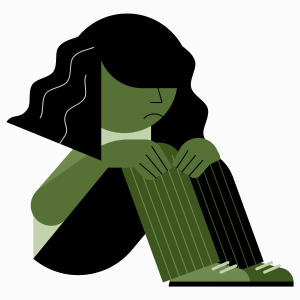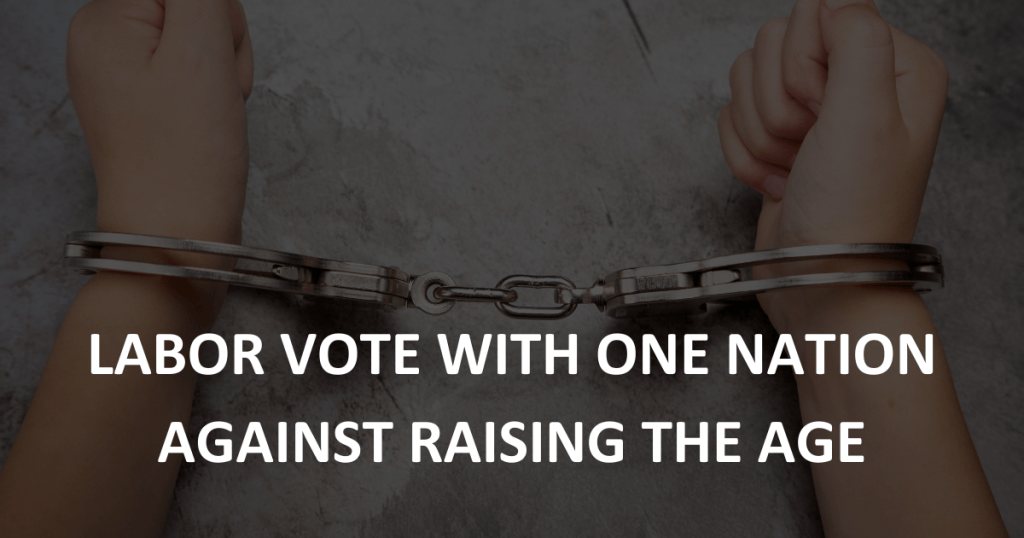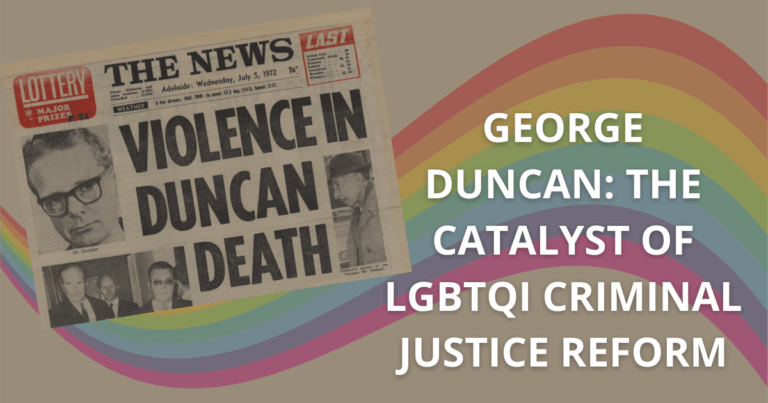Labor stood with One Nation in voting against a bill raising the age of criminal responsibility from 10 in NSW.
The bill, introduced in November last year, would raise the age of criminal responsibility from 10 to 14.
It would further legislate that children under 16 can’t be detained or imprisoned as a penalty for criminal offences.
Raising the Age: Bill fails to pass
The Criminal (Criminal Proceedings) Amendment (Age of Criminal Responsibility) Bill 2021 (‘the Bill’) was voted down Thursday.
Labor, along with One Nation and the Coalition, all voted against the Greens bill.
David Shoebridge MLC, who introduced the bill, tweeted his disappointment.
To the groups who campaigned so hard to get this change – I’m sorry we didn’t get it this time. This is further than we have come before and we won’t give up.
— David Shoebridge (@ShoebridgeMLC) March 30, 2022
“Kids who are still losing their baby teeth don’t belong in prisons. Putting these children in the too hard basket isn’t an answer, and it causes lasting harm,” Shoebridge tweeted.
“We should be making plans to close prisons. We know they don’t work to reduce harm. Instead in NSW we’re building more and larger private prisons, emulating the failed US model.”
Only stakeholder in opposition was police, Shoebridge says
Shoebridge outlined how all stakeholders were in support of raising the age, aside from NSW Police.
“All the expert evidence supports this move,” he said.

“[O]rganisations have patiently been providing detailed research to all parties on the need to raise the age,” Shoebridge tweeted.
“[B]ut Labor ignored these and followed the only org that disagreed: the NSW Police Association.”
In Parliament, Shoebridge addressed his colleagues directly.
“Perhaps the most disappointing aspect of the contribution from the Australian Labor Party [ALP] was that out of all the stakeholders in the Raise The Age campaign—the Law Society, the Public Interest Advocacy Centre [PIAC], one of dozens and dozens of law reform bodies, legal bodies, youth advocacy groups—that are 100 per cent behind the campaign and sent bucketloads of material to the shadow Minister and to the Opposition about why we need to raise the age of criminal responsibility, the only stakeholder that the Opposition referred to was the Police Association of New South Wales.”
Shoebridge conceded defeat in the bill, criticising the Members on their lack of engagement.
“I accept that we are not going to get a majority on the bill,” he said.
“[B]ut what I am grossly disappointed by is the lack of quality in the debate and the engagement with the real issues behind the bill and a collective commitment to do better. That is what is missing in the debate.”
Thirty-three members voted against the bill, with only four votes for the bill.
Failing Australia’s Children
 For a person to be responsible for a crime, they have to have the capacity to be ‘criminally responsible’. However, when it comes to children, Australia states that this occurs the day you turn 10.
For a person to be responsible for a crime, they have to have the capacity to be ‘criminally responsible’. However, when it comes to children, Australia states that this occurs the day you turn 10.
In 2019, the United Nations Committee on the Rights of the Child recommended 14 years as the minimum age. Many countries across Europe have the minimum age as 14. Even our friends across the Tasman have a minimum of 13 (except in cases of manslaughter or murder).
#RaiseTheAge 🧵Why does an early prison sentence increase rather than decrease the odds of future criminality? Well, it’s predominantly about the stage of development. First kids this age don’t fully understand consequences of behaviours in the same way as adults 1/14
— Dr Tracy Westerman AM (@TracyWesterman) March 27, 2022
Here are some other countries and how they legislate on this issue:
- 12 years—Canada, Greece, Netherlands.
- 13 years—France, Israel, New Zealand (except for murder/ manslaughter where the age limit of 10 applies).
- 14 years—Austria, Germany, Italy and many Eastern European countries.
- 15 years—Denmark, Finland, Iceland, Norway, Sweden.
- 16 years—Japan, Portugal, Spain.
- 18 years—Belgium, Luxembourg.
In January last year, the UN slammed Australia’s human rights record, urging the Government to shift their position.
Australia’s youth justice was a strong focus for scrutiny, with roughly 31 UN member states recommending raising the age.
Raising the age: solution-based approach
Shoebridge noted that work would need to be done to find alternatives to imprisonment.
“I accept that […] significant work will be required in finding alternatives to imprisonment,” Shoebridge stated in Parliament.
“In that regard, I endorse the work of the ACT Government,”
“[They are] taking lessons from multiple other jurisdictions around the world, including States in the United States and pretty much every State in Europe, which all have ages of criminal responsibilities significantly higher than New South Wales and Australia, ” he said in Parliament.
Many types of solutions have been thrown around. Here are some of the top solutions alongside the people who have recommended them.
- Better support through acute paediatric and general mental health services (RACP)
- Support for parents struggling with mental health and drug and alcohol issues (RACP)
- Working with Aboriginal and Torres Strait Islander communities to develop culturally appropriate solutions within the community (RACP)
- Expansion to child protection services to support vulnerable children and their families (RACP)
- More emphasis on support services, treatment, early intervention and community-led diversion programs built on Indigenous culture (Law Council of Australia).
O’Brien Criminal and Civil Solicitors supports raising and age of criminal responsibility.






